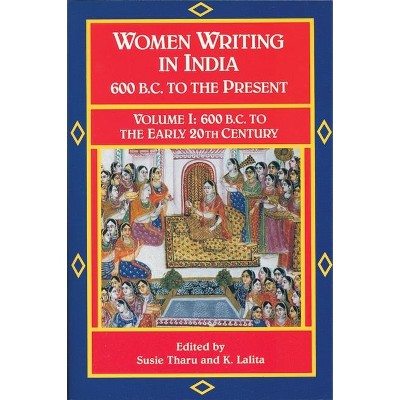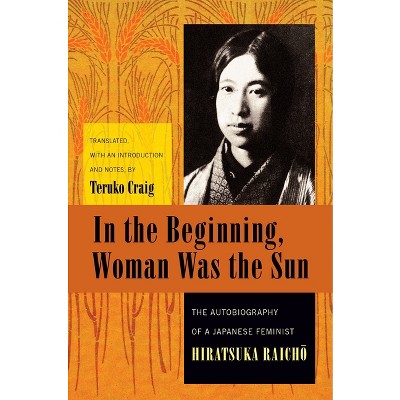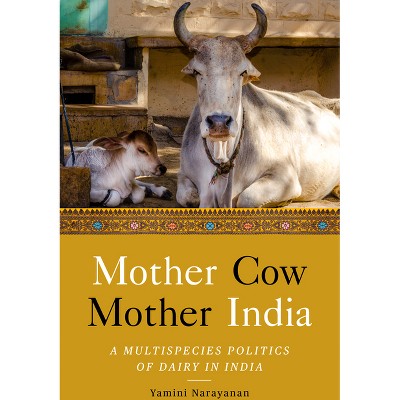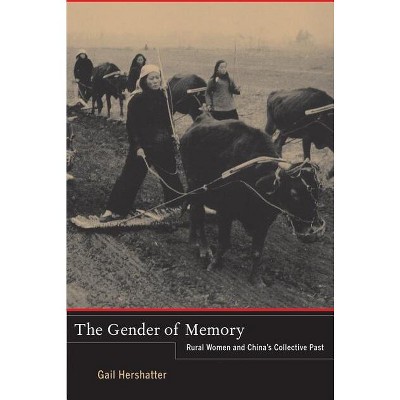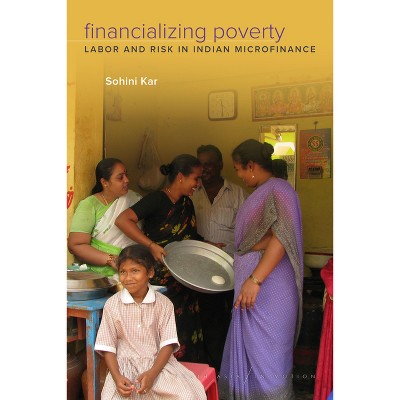Sponsored

The Vulgarity of Caste - (South Asia in Motion) by Shailaja Paik (Paperback)
In Stock
Sponsored
About this item
Highlights
- This book offers the first social and intellectual history of Dalit performance of Tamasha-a popular form of public, secular, traveling theater in Maharashtra-and places Dalit Tamasha women who represented the desire and disgust of the patriarchal society at the heart of modernization in twentieth century India.
- About the Author: Shailaja Paik is Associate Professor of History at the University of Cincinnati.
- 422 Pages
- Social Science, Women's Studies
- Series Name: South Asia in Motion
Description
About the Book
"Drawing on an extensive archive of Marathi sources, from publications to music to state documents, Shailaja Paik provides a social and intellectual history of Dalit women's stigmatized sexuality in the 20th century and the patriarchal efforts to sanitize it. The Vulgarity of Caste is the first work of South Asian history to examine the vernacular concepts of vulgarity and disgust and the roles they played in developing the socio-political landscape of western India in the 1900s. Paik uses the Dalit theatre performance of Tamasha as a lens through which to analyze the processes and politics of vulgarity, as defined and shared by men in the colonial British government, in the dominant castes, and in the Dalit communities alike. She argues that, although the boundaries of vulgarity are fluid, it works through sexual and social differentiation (including food, language, music, and dance) to actually extend and re-generate caste hierarchy, class inequality, and Dalit subalternity. Her study revolves around Dalit performers she calls "vulgar public women" who negotiated with patriarchal pressure both inside and outside the Dalit community, and bent it to suit their own purposes. With their accounts at the core, Paik traces how a range of dominant social actors facilitated the construction and consolidation of caste patriarchies by attempting to authoritatively define the modern public sphere and regional Marathi identity across the twentieth century"--Book Synopsis
This book offers the first social and intellectual history of Dalit performance of Tamasha-a popular form of public, secular, traveling theater in Maharashtra-and places Dalit Tamasha women who represented the desire and disgust of the patriarchal society at the heart of modernization in twentieth century India. Drawing on ethnographies, films, and untapped archival materials, Shailaja Paik illuminates how Tamasha was produced and shaped through conflicts over caste, gender, sexuality, and culture. Dalit performers, activists, and leaders negotiated the violence and stigma in Tamasha as they struggled to claim manuski (human dignity) and transform themselves from ashlil (vulgar) to assli (authentic) and manus (human beings).
Building on and departing from the Ambedkar-centered historiography and movement-focused approach of Dalit studies, Paik examines the ordinary and everydayness in Dalit lives. Ultimately, she demonstrates how the choices that communities make about culture speak to much larger questions about inclusion, inequality, and structures of violence of caste within Indian society, and opens up new approaches for the transformative potential of Dalit politics and the global history of gender, sexuality, and the human.
Review Quotes
"[The] Vulgarity of Caste reworks our understanding of caste, asserting that caste cannot be studied by divorcing it from questions of gender, region, labour, and the regulation of sexuality. Paik's research rests heavily on the vernacular print archive as well as on photography and cinema. She demonstrates a careful and empathetic way of carrying out ethnography, which does not seem like an overreach into the private lives of her subject." --Kaustubh Naik, Nidān: International Journal for Indian Studies
"a must-read for anyone undertaking anti-caste, feminist scholarship in interdisciplinary fields including gender, labor, agrarian, or development studies." --Indulata Prasad, Journal of Development Studies
"[The Vulgarity of Caste] offers several fascinating insights, none more incisive than the production and reproduction of the sex-gender-caste complex in modern India through the bodies of the Dalit tamasha women." --Juned Shaikh, American Historical Review
"As a path breaking book within Dalit, caste and gender studies, [The Vulgarity of Caste] opens new terrain within the larger discipline of cultural studies." --Ali Ahsan, Cultural Studies
"In this brilliant original account of women in Tamasha, Shailaja Paik argues that the extractive sexual economy of caste rests on their desired as well as derided labor. Drawing on rare archival sources and careful ethnography, she calls attention to how the women negotiate stigma, especially in relation to a Dalit emancipatory politics, embarrassed by their 'sexual excess.'" --V. Geetha, author of Bhimrao Ramji Ambedkar and the Question of Socialism in India
"Paik not only breaks new ground but also builds a foundation. Combining ethnography, archival work, and critical readings of key thinkers, she offers a dazzling interdisciplinary exploration of how Tamasha serves as a metonym for the ways gender, caste, and power construct identity in caste-patriarchal society. This work is one of the many reasons Paik is at the forefront of Dalit feminist studies and why she is one of the most innovative historians of South Asia writing today." --Christian Lee Novetzke, University of Washington
"Paik repeatedly identifies herself as a feminist Dalit and attributes this to her unprecedented anthropological access to, and understanding of, contemporary Tamasha artists. She also draws on Marathi-language lyrics, articles, advertisements, and other sources never before available in English. Recommended." --M. H. Fisher, CHOICE
"This book not only makes an original contribution to debates on the intersectionality of caste and gender but also challenges the mainstream privileged position of feminists and presents a perspective from the margins." --Chinnaiah Jangam, Pacific Affairs
"While demonstrating the 'agency' of Tamashe women as a product of complex, contingent historical processes, Paik makes a significant argument about the mutually constitutive binaries of touchability/untouchability, brahmin/untouchable, ashlil/aslee, housewife/prostitute, among others. In doing so, she offers conceptual resources for Indian feminist and Dalit thought to deal with the impasse of the 'prostitute' question. Equally important, Paik develops her earlier emphasis on contingency, context and rupture of Dalit women's agency to illuminate the contingency and temporality of Ambedkar's thinking around manuski, family and caste labour and the material limits that history imposes on its actualisation." --A. Suneetha, Contributions to Indian Sociology
About the Author
Shailaja Paik is Associate Professor of History at the University of Cincinnati. She is the author of Dalit Women's Education in Modern India: Double Discrimination (2014).


